The 1980s represented the golden age of the family sitcom, a time when television writers deliberately crafted storylines to impart wisdom alongside laughter. While easy to dismiss as simplistic by today’s standards, these 30-minute episodes tackled complex issues with surprising nuance and emotional honesty. Behind the big hair and shoulder pads, these shows created moments of genuine connection for millions of American families who watched together in living rooms across the country. Here’s a look at thirteen series that managed to entertain while actually teaching viewers something meaningful about navigating life’s challenges.
1. Family Ties (1982-1989)
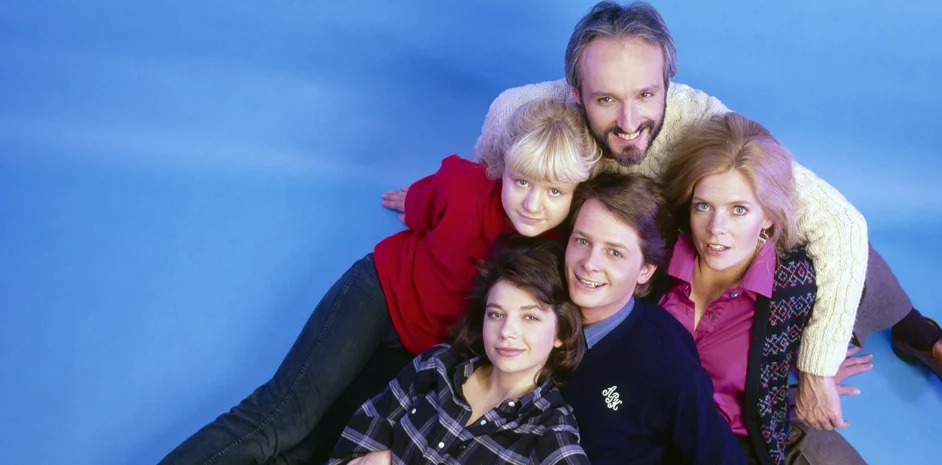
“Family Ties” brilliantly captured the generational divide between former hippie parents Steven and Elyse Keaton (Michael Gross and Meredith Baxter) and their Reagan-supporting, ambitious son Alex (Michael J. Fox), creating a setup that allowed the show to explore competing value systems with remarkable even-handedness. Rather than simply declaring one worldview correct, the show regularly forced both generations to reconsider their assumptions, suggesting that 1960s idealism and 1980s pragmatism each had something to offer. This willingness to present multiple legitimate perspectives on complex issues set “Family Ties” apart from more simplistic family fare. If you think your family ties are strong, check out MeTV for a quiz to identify the oldest sibling among some of TV’s most classic families.
The episode “A, My Name is Alex,” a special hour-long meditation on grief following the sudden death of Alex’s friend, remains one of the most profound explorations of mortality ever presented in a sitcom format. Staged partially as a one-man show breaking the traditional sitcom format, it tackled existential questions about purpose and loss with startling emotional depth. The show regularly balanced such weighty material with genuine humor, teaching viewers that families could discuss difficult topics without diminishing their importance or sacrificing the warmth and laughter that make family life meaningful.
2. The Cosby Show (1984-1992)

“The Cosby Show” revolutionized family television by presenting an upper-middle-class Black family whose experiences were portrayed with both humor and depth. The Huxtable family, led by obstetrician Cliff (Bill Cosby) and attorney Clair (Phylicia Rashad), navigated everything from academic struggles and teenage dating to more serious topics like dyslexia and teen pregnancy. The show’s greatest strength lay in its portrayal of parenting as an imperfect practice requiring both boundaries and warmth, with episodes frequently showing parents making mistakes and modeling how to take responsibility for them. The series remains so impactful that, to this day, The New York Times reports that it matters as much as ever.
Episodes like “Theo’s Gift,” which sensitively portrayed learning disabilities, helped countless families recognize and address similar issues in their own children. The show consistently emphasized the value of education while acknowledging that intelligence manifests in different ways, a remarkably nuanced message for 1980s television. While the legacy of the show has been complicated by later revelations about its star, the writing and performances created something genuinely valuable – a weekly demonstration that family conflicts could be resolved through communication, respect, and the liberal application of humor.
3. Growing Pains (1985-1992)
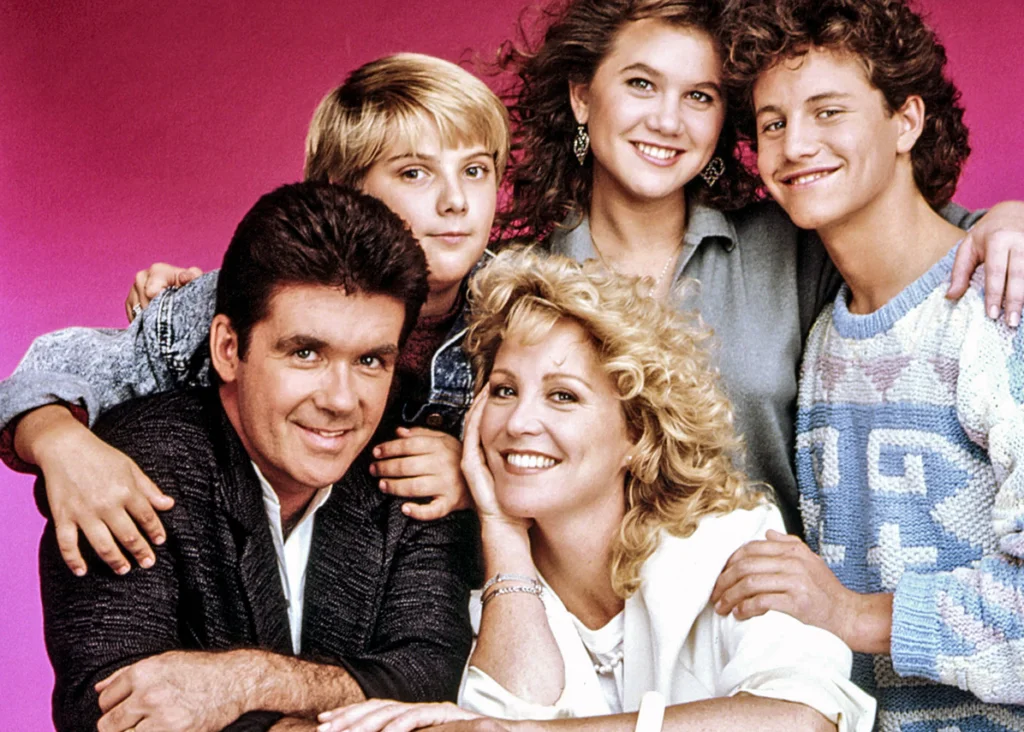
“Growing Pains” centered on the Seaver family, where psychiatrist Jason (Alan Thicke) worked from home while journalist Maggie (Joanna Kerns) returned to the workforce – a role reversal that was still relatively progressive for 1980s television. While the show delivered plenty of standard sitcom hijinks through teenager Mike (Kirk Cameron), middle child Carol (Tracey Gold), and youngest son Ben (Jeremy Miller), it also regularly tackled substantial issues including alcoholism, peer pressure, and eating disorders. The addition of homeless teen Luke (Leonardo DiCaprio) in later seasons allowed the show to address themes of poverty and chosen family.
The series’ handling of Carol’s eating disorder, which mirrored actress Tracey Gold’s real-life struggle with anorexia, provided one of television’s first serious examinations of this issue. Rather than resolving the problem in a single “very special episode,” the show acknowledged the ongoing nature of such challenges. “Growing Pains” consistently taught that family meant providing both unconditional love and accountability, showing parents who balanced affection with appropriate consequences for their children’s missteps – a parenting model that research increasingly supports as effective.
4. Diff’rent Strokes (1978-1986)
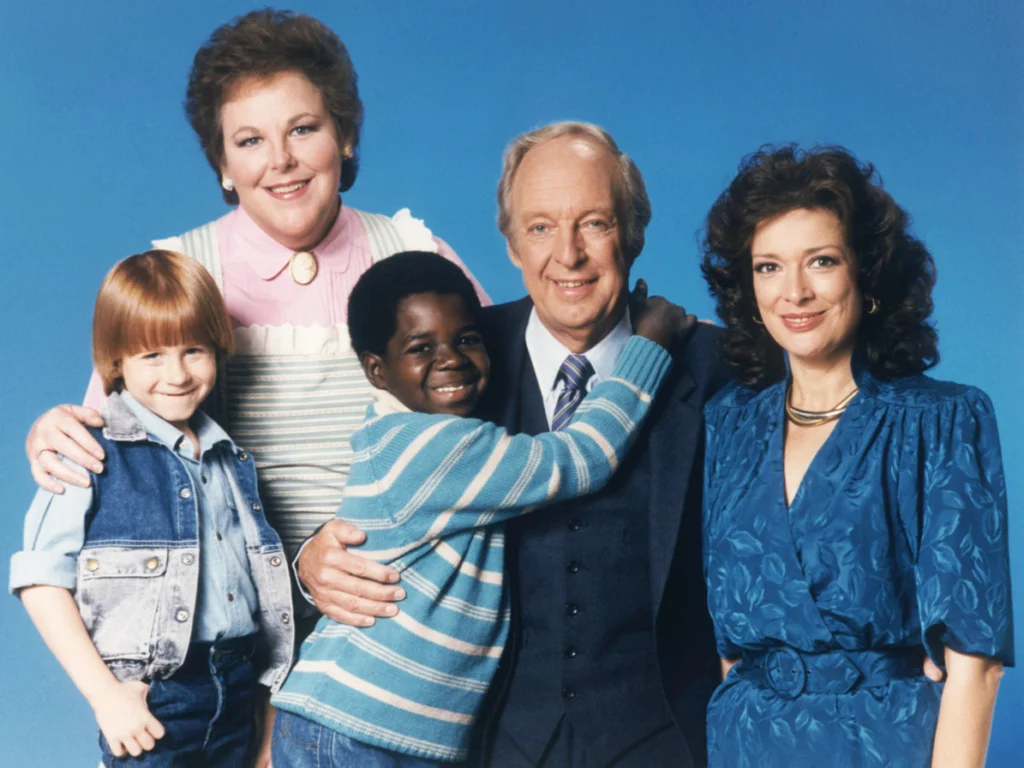
While “Diff’rent Strokes” is often remembered for catchphrases and its premise of wealthy white businessman Philip Drummond (Conrad Bain) adopting two Black boys from Harlem, Arnold and Willis Jackson (Gary Coleman and Todd Bridges), the show regularly used this setup to explore issues of race, class, and privilege. The fish-out-of-water scenario provided a vehicle for addressing prejudice in its many forms, while the genuine family bond that developed between characters modeled how love could transcend social boundaries. Episodes tackled topics ranging from racism and bullying to drug use with a directness unusual for its era.
The now-famous “very special episodes” addressing child molestation, substance abuse, and stranger danger may seem heavy-handed viewed today, but they started crucial conversations in many households that might otherwise have avoided these topics entirely. The character of Kimberly (Dana Plato) allowed the show to address issues specific to teenage girls, while housekeeper Mrs. Garrett (Charlotte Rae) provided practical wisdom from a working-class perspective. By creating a blended family facing real-world problems, “Diff’rent Strokes” taught viewers that family bonds could be formed by choice as well as biology, a progressive message that has only become more relevant with time.
5. Who’s the Boss? (1984-1992)
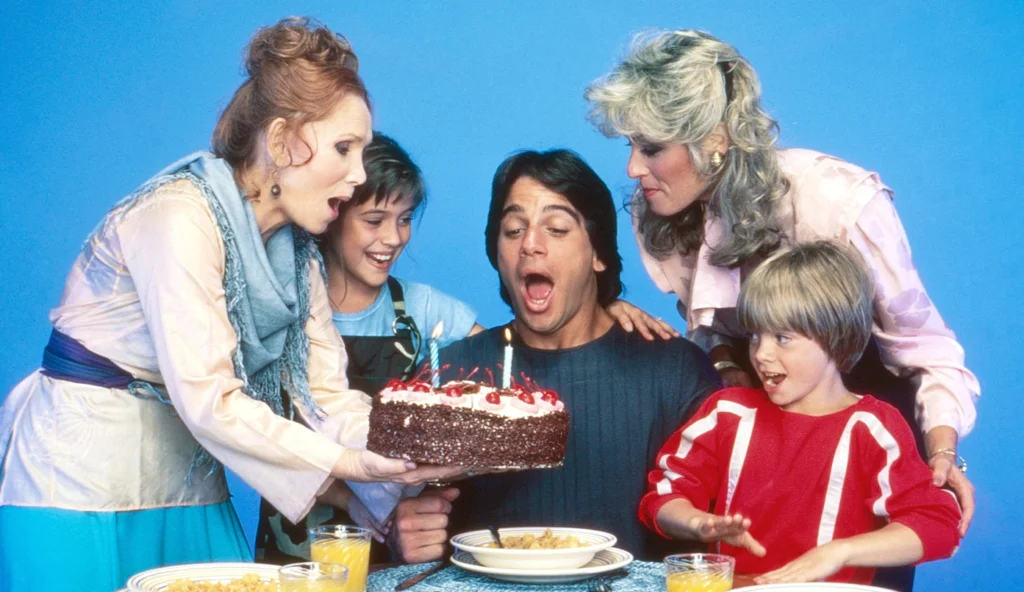
“Who’s the Boss?” built its premise on gender role reversal, with former baseball player Tony Micelli (Tony Danza) becoming housekeeper to advertising executive Angela Bower (Judith Light) and her son Jonathan (Danny Pintauro), while Tony’s daughter Samantha (Alyssa Milano) adjusted to their new living arrangement. This setup allowed the show to consistently challenge gender stereotypes, showing a nurturing father and a career-driven mother without undermining either character’s strength or dignity. The slow-burning romantic tension between Tony and Angela modeled something rarely seen on television: a relationship built on genuine friendship, mutual respect, and shared parenting values.
Beyond gender politics, the show sensitively portrayed the challenges of single parenthood and blended families, acknowledging the complexities of raising children amid changing family structures. Episodes dealing with Samantha’s development from tomboy to teenager addressed body image, dating, and female ambition with surprising nuance. Perhaps most importantly, the character of Mona (Katherine Helmond), Angela’s sexually liberated mother, provided an unprecedented portrayal of older women’s vitality and agency, challenging ageist stereotypes while delivering many of the show’s best lines. The series ultimately taught that family could be defined by commitment rather than convention, a lesson that resonated with the increasingly diverse family structures of 1980s America.
6. Full House (1987-1995)
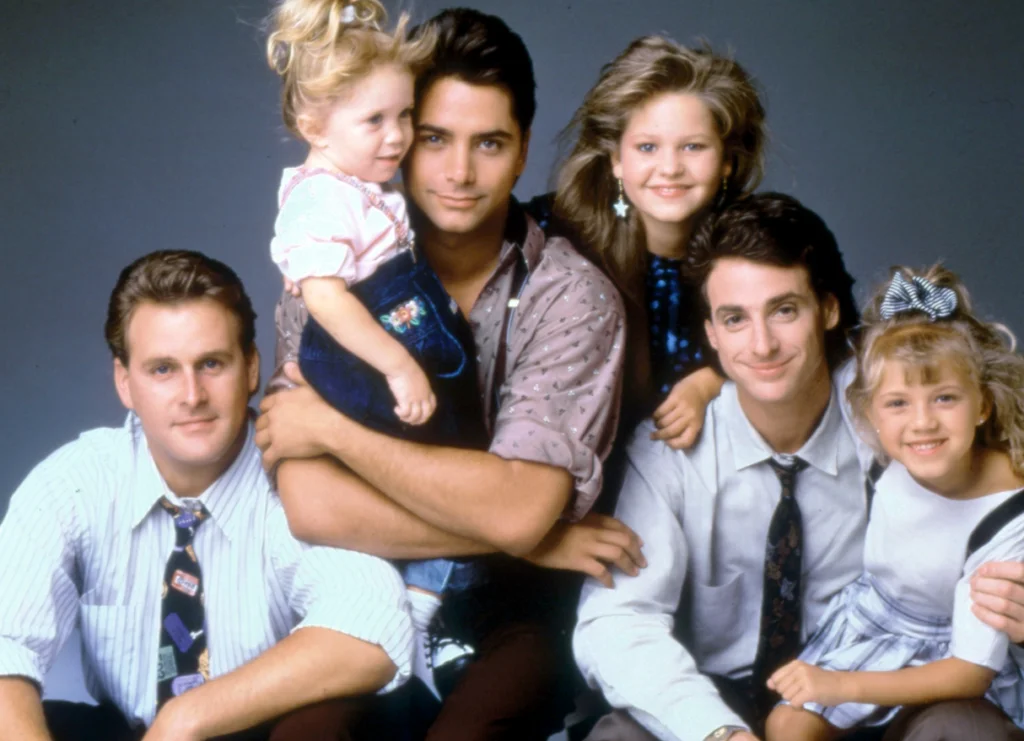
“Full House” created a unique family structure with widowed father Danny Tanner (Bob Saget) raising three daughters with help from his brother-in-law Jesse (John Stamos) and best friend Joey (Dave Coulier). While often saccharine by contemporary standards, the show provided genuine guidance on navigating grief, addressing the girls’ ongoing process of coping with their mother’s death rather than treating it as a one-episode issue. This acknowledgment of grief as an evolving experience rather than a problem to be neatly resolved was unusually realistic for family programming of the era.
The show’s emphasis on male nurturing challenged traditional gender expectations, showing three different models of masculinity contributing to a loving household. Episodes regularly concluded with heartfelt conversations that, despite their formulaic nature, normalized the expression of emotions for male characters and viewers alike. Storylines involving oldest daughter D.J. (Candace Cameron) tackled peer pressure, body image, and academic stress in ways accessible to young viewers experiencing similar challenges. While critics often dismissed its sentimentality, “Full House” consistently taught that vulnerability and emotional honesty strengthened rather than weakened family bonds – a counterpoint to the “tough it out” messaging prevalent in 1980s culture.
7. The Wonder Years (1988-1993)
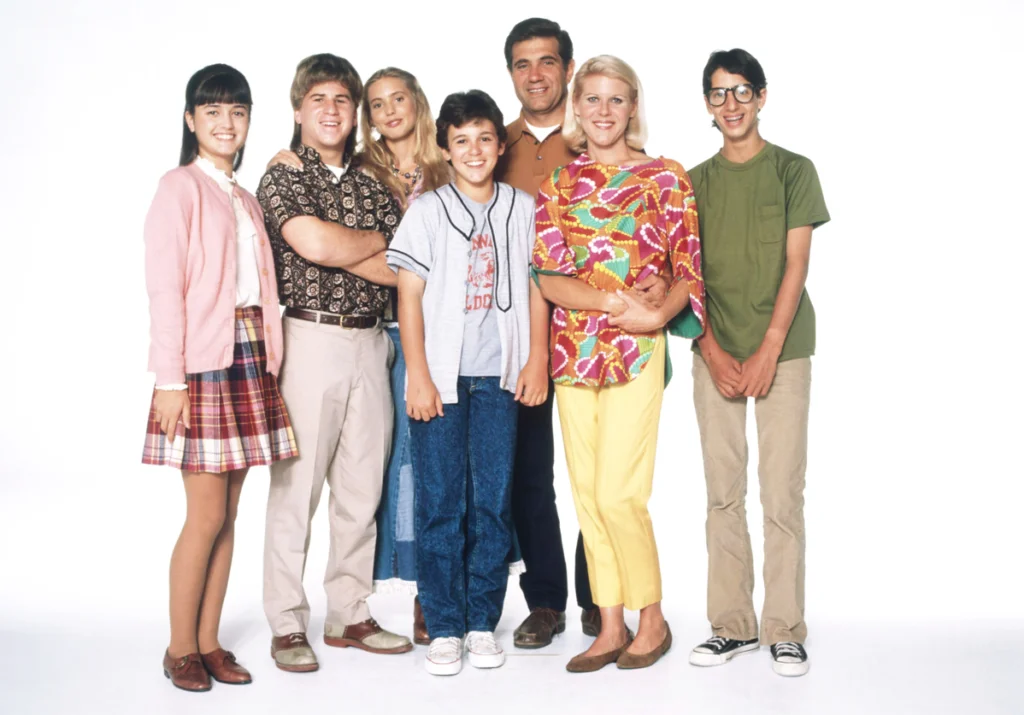
Though technically beginning in the late 1980s, “The Wonder Years” captured the 1960s and early 1970s through the perspective of Kevin Arnold (Fred Savage), providing a nostalgic but honest portrayal of American adolescence against the backdrop of profound social change. The show’s unique format, featuring narration from an adult Kevin reflecting on his youth, allowed viewers to simultaneously experience the immediacy of adolescent emotions while understanding these experiences from a mature perspective. This dual viewpoint created unusually nuanced storylines about family dynamics, first love, and the confusing process of growing up.
Episodes addressing the impact of the Vietnam War, civil rights movement, and changing gender roles placed personal coming-of-age moments within their broader historical context, helping viewers understand how larger social forces shape individual experiences. The complicated relationship between Kevin and his father Jack (Dan Lauria) portrayed intergenerational tension with remarkable compassion, acknowledging both the father’s limitations and his love. The series ultimately taught that understanding our parents as complex human beings – and recognizing how their era shaped them – is an essential part of growing up, a lesson delivered through masterful writing and performances rather than simplistic moralizing.
8. The Facts of Life (1979-1988)
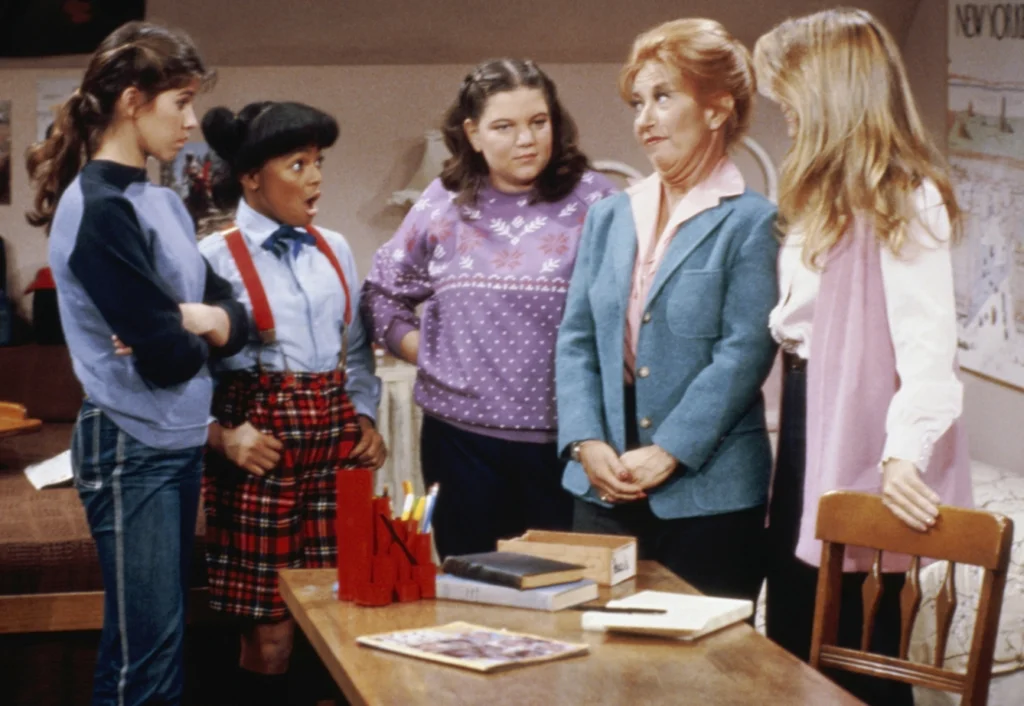
“The Facts of Life” began as a “Diff’rent Strokes” spin-off following housekeeper Edna Garrett (Charlotte Rae) as she became housemother at an all-girls boarding school. After focusing its attention on four main students – wealthy Blair (Lisa Whelchel), tough-talking Jo (Nancy McKeon), gossipy Tootie (Kim Fields), and boy-crazy Natalie (Mindy Cohn) – the show evolved into a thoughtful exploration of young women’s development. While unquestionably a product of its era in many ways, the series regularly addressed topics like sexuality, peer pressure, and moral decision-making with surprising candor, providing female-centered perspectives rarely seen on family television.
Episodes tackled genuinely challenging subjects including sexual assault, suicide, and eating disorders, generally avoiding the after-school special tone that plagued many “issue” episodes of the era. The diverse personalities of the main characters allowed multiple approaches to problems, demonstrating that there wasn’t a single “right way” to be a young woman. Mrs. Garrett’s blend of compassion and accountability provided a model of adult mentorship that acknowledged young people’s autonomy while providing necessary guidance. At its best, the show taught that female friendships could sustain women through life’s challenges, a message that resonated with young female viewers still rarely seeing their experiences centered in mainstream entertainment.
9. Silver Spoons (1982-1987)
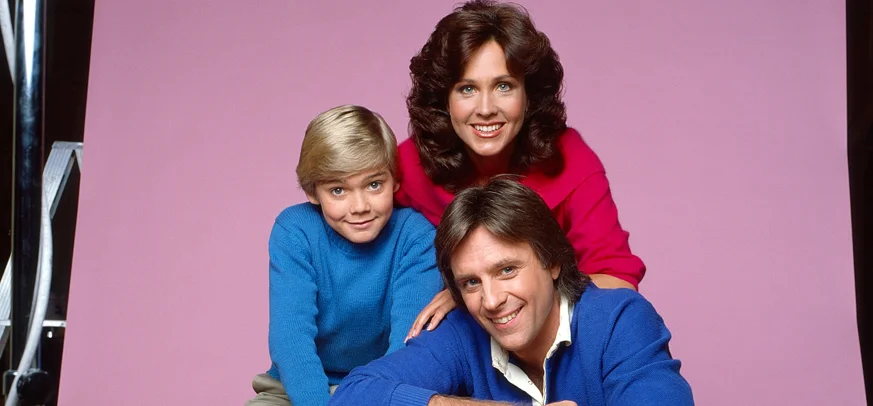
“Silver Spoons” paired wealthy but childish toy company owner Edward Stratton III (Joel Higgins) with his previously unknown son Ricky (Rick Schroder), creating a premise that allowed the show to explore both the appeal and the limitations of materialism. Edward’s massive mansion filled with arcade games and toys initially presented wealth as every child’s fantasy, but the show consistently emphasized that emotional connection mattered more than possessions. This message, delivered during the height of 1980s consumerism, provided a thoughtful counterpoint to the decade’s materialistic values.
The series regularly contrasted Ricky’s privileged lifestyle with that of his less affluent friends, particularly working-class Derek (Jason Bateman), addressing class differences with surprising sensitivity. Edward’s growth as a parent demonstrated that maturity wasn’t about abandoning playfulness but about balancing it with responsibility. The show’s treatment of Ricky’s absent mother acknowledged the complexity of non-traditional family structures without villainizing either parent. “Silver Spoons” ultimately taught viewers that genuine relationships required emotional investment rather than financial expenditure, a message particularly valuable during an era often characterized by its emphasis on acquisition and status symbols.
10. Mr. Belvedere (1985-1990)
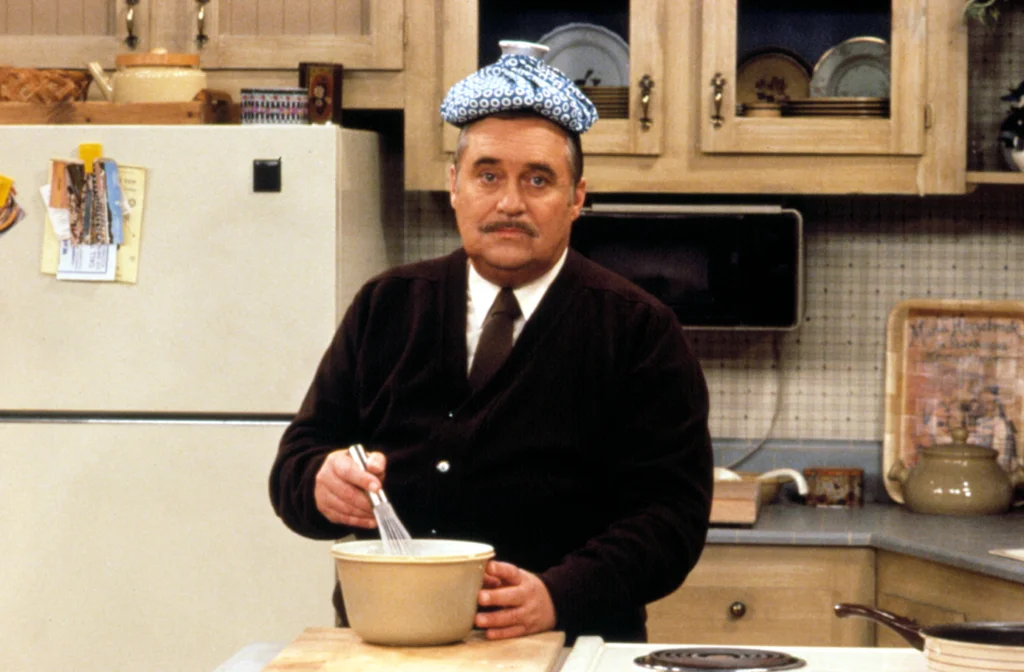
“Mr. Belvedere” brought British butler Lynn Belvedere (Christopher Hewett) into the middle-class Owens household, creating a premise that allowed the show to gently challenge American cultural assumptions. Sportswriter father George (Bob Uecker) initially resisted Belvedere’s refined influence, while mother Marsha (Ilene Graff) pursued her law degree – a secondary plot point that normalized women’s professional ambitions. The children – teenager Kevin (Rob Stone), middle child Heather (Tracy Wells), and youngest Wesley (Brice Beckham) – each received Belvedere’s dry-witted guidance through age-appropriate challenges.
The series addressed surprisingly diverse topics including illiteracy, AIDS, male eating disorders, and senior citizen dating with thoughtfulness rarely afforded by sitcoms of its era. Belvedere’s outsider perspective allowed the show to question American norms around parenting, education, and social interactions without becoming preachy. Episodes consistently emphasized the importance of looking beyond immediate self-interest to consider how one’s actions affected others. Perhaps the show’s most meaningful lesson came through its portrayal of masculinity, with Belvedere demonstrating that traditionally “feminine” traits like nurturing, emotional intelligence, and domestic skill enhanced rather than diminished his dignity as a man – a remarkably progressive message for 1980s television.
11. Punky Brewster (1984-1988)
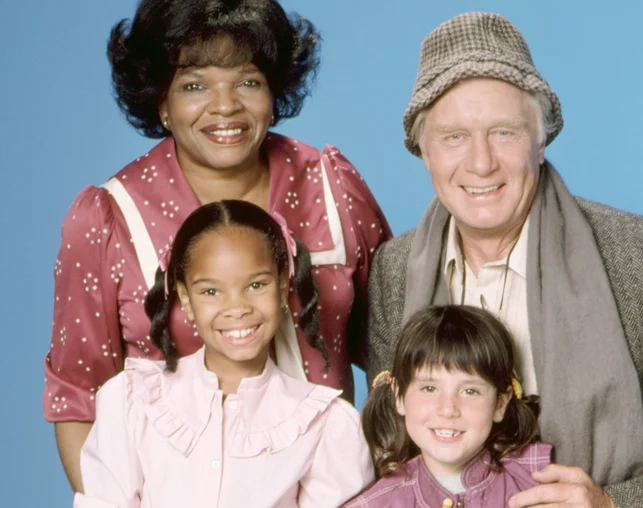
“Punky Brewster” introduced viewers to spirited orphan Penelope “Punky” Brewster (Soleil Moon Frye) and the elderly building manager Henry Warnimont (George Gaynes) who eventually adopted her. Beyond its premise of chosen family, the show tackled subjects including abandonment, foster care, and adoption with surprising emotional depth for a series featuring such a young protagonist. Punky’s resilience provided young viewers with a model of coping with adversity without minimizing the genuine pain of difficult circumstances.
Episodes addressing childhood fears – from the famous refrigerator danger warning to nightmares and peer intimidation – validated young viewers’ concerns while providing practical strategies for managing them. The friendship between Punky and wealthy Betty Johnson (Cherie Johnson) demonstrated crossing socioeconomic lines with mutual respect. The show’s treatment of Henry’s journey from solitary widower to engaged parent showed that family could bring renewed purpose at any life stage. “Punky Brewster” ultimately taught that optimism wasn’t about denying life’s challenges but about facing them with determination and the support of those who choose to love you – a nuanced message delivered through a character wearing mismatched shoes and rainbow attire.
12. Kate & Allie (1984-1989)
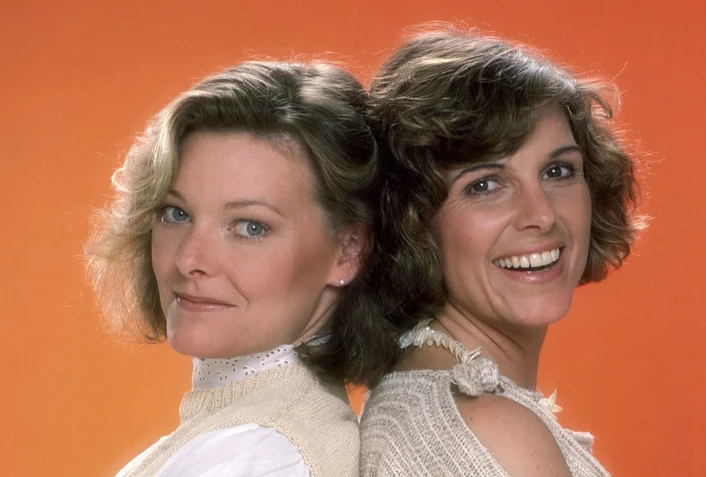
“Kate & Allie” centered on two divorced single mothers (Susan Saint James and Jane Curtin) who combined households to raise their children together, creating an unconventional family structure rarely seen on television at that time. The show addressed the economic and emotional realities of divorce with honesty, showing both the challenges and the possibilities for rebuilding life after marriage. By portraying divorce as a difficult transition rather than a moral failure, the series helped destigmatize a reality affecting millions of American families.
The contrasting personalities of practical Allie and free-spirited Kate demonstrated multiple valid approaches to parenting and life management, while their solid friendship modeled conflict resolution and mutual support. Episodes dealing with dating after divorce, workplace sexism, and co-parenting with ex-spouses tackled the complexities of women’s changing roles in society without easy answers. The show’s portrayal of the household’s teenagers acknowledged adolescent perspectives without making adults seem clueless. “Kate & Allie” ultimately taught that family bonds could be strengthened rather than broken by adversity when supported by commitment and creativity – a hopeful message for viewers navigating their own family transitions.
13. Family Matters (1989-1998)
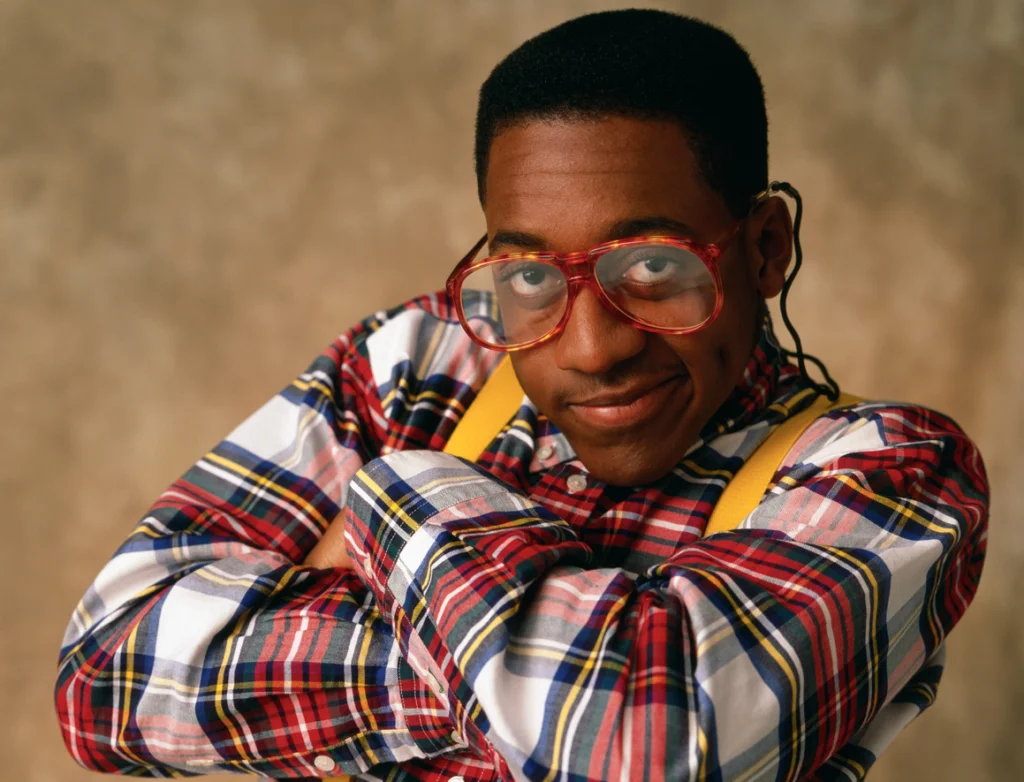
While “Family Matters” technically stretched well into the 1990s, its origins as a late-1980s family sitcom established its approach to blending humor with genuine life lessons. Initially focused on the Winslow family headed by police officer Carl (Reginald VelJohnson) and elevator operator Harriette (Jo Marie Payton), the show evolved to incorporate neighbor Steve Urkel (Jaleel White), whose catchphrases and physical comedy sometimes overshadowed the show’s more thoughtful elements. Behind the nerd stereotypes, however, the series consistently addressed issues of racial identity, police work in Black communities, and economic pressures on working-class families.
Episodes exploring racial profiling, gun safety, and Carl’s complex position as both a Black man and a police officer provided nuanced perspectives on societal tensions. The relationship between Carl and Steve moved beyond simple annoyance to explore mentorship across difference, with Carl providing the male guidance missing in Steve’s life. Laura Winslow’s character (Kellie Shanygne Williams) addressed young Black women’s experiences with dating, career aspirations, and self-image. The show’s extended family structure, including Harriette’s sister Rachel and her son Richie, demonstrated the African American tradition of flexible, supportive family networks. “Family Matters” ultimately taught that community strength comes from embracing rather than merely tolerating difference, a lesson delivered through characters who grew beyond their initial stereotypes into genuine complexity.
These thirteen shows, despite their occasionally dated references and sometimes simplistic resolutions, provided American families with shared vocabulary for discussing complex issues. Their greatest contribution wasn’t in delivering perfect answers but in normalizing the conversation itself – suggesting that family communication could address everything from historical events to personal struggles without diminishing either affection or respect. In an era before streaming services and individual screens fractured the viewing experience, these sitcoms created a common reference point for multiple generations, teaching not just the life lessons written into their scripts but modeling the very act of family engagement with meaningful questions.


